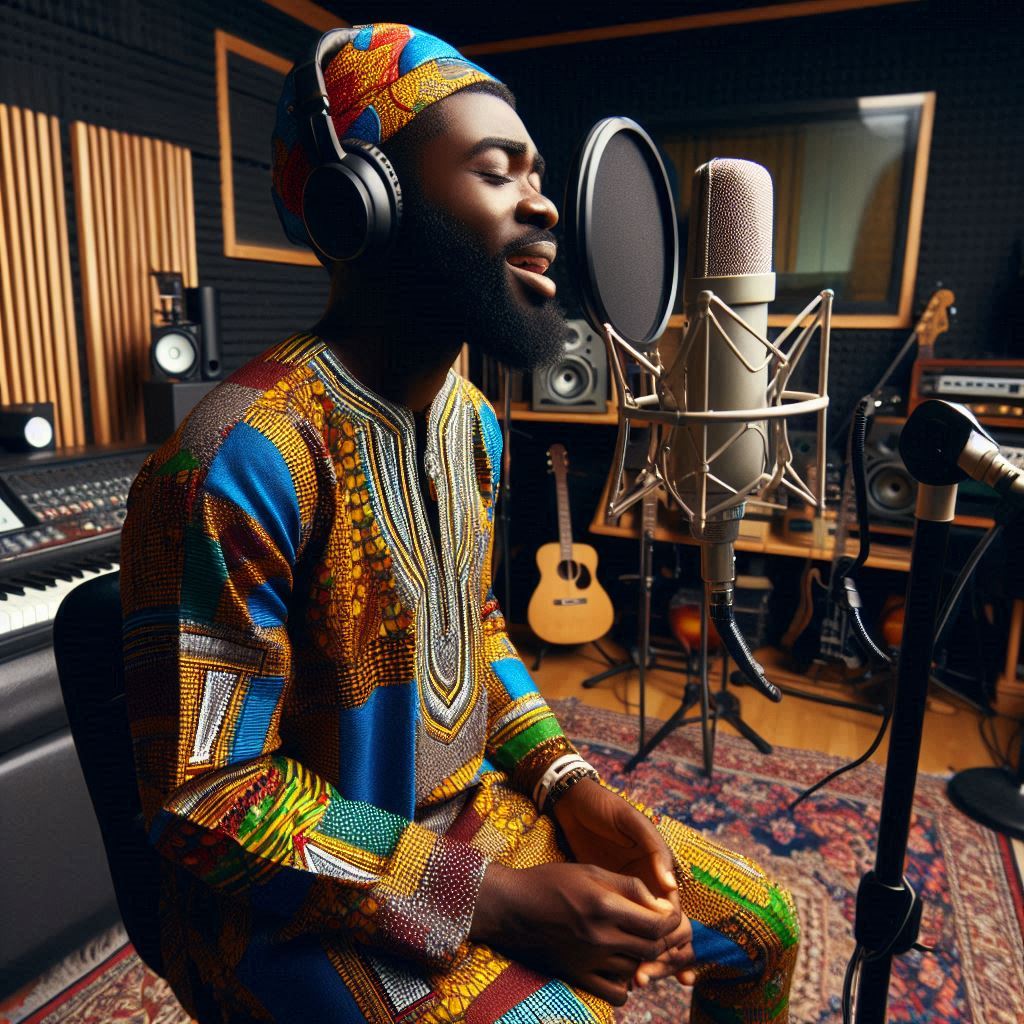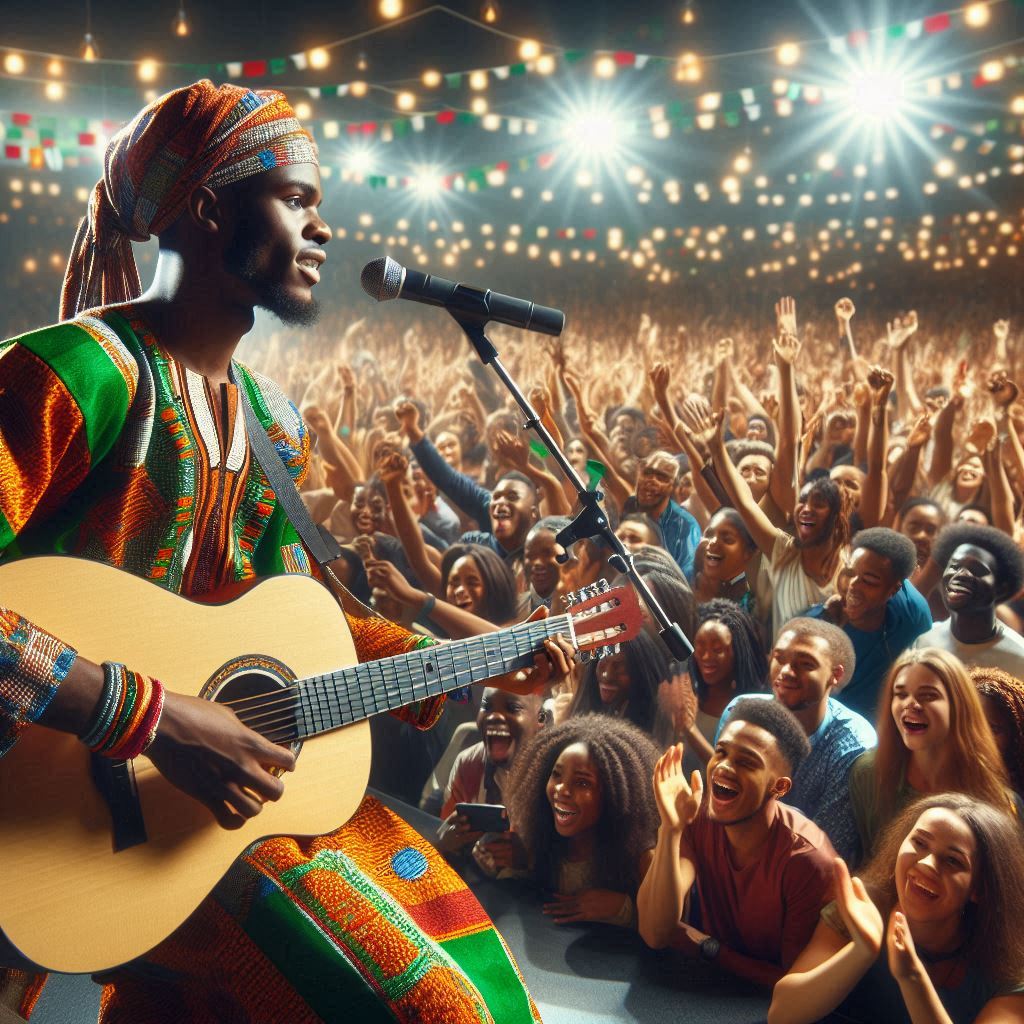Introduction
Nigeria is a diverse country with a rich history of religion. Religion plays a significant role in shaping Nigerian culture and society.
Religion is deeply ingrained in the fabric of Nigerian life, influencing everything from social norms to government policies.
The country is home to a mix of religions, including Christianity, Islam, and traditional African beliefs, each with a strong presence.
Religion in Nigeria serves as a unifying force among diverse ethnic groups, fostering a sense of community and shared values.
As a result, religious practices and beliefs have a profound impact on various aspects of Nigerian life, from family dynamics to political affiliation.
Overview of Religion in Nigeria
Religion significantly shapes Nigerian culture and society. The country is religiously diverse, with Christianity, Islam, and indigenous religions coexisting.
Each of these religions has deeply influenced various aspects of Nigerian life, from social norms to political structures.
Christianity in Nigeria
- Historical Spread: Christianity arrived in Nigeria in the 15th century through Portuguese missionaries.
- Major Denominations: Various denominations, such as Catholic, Anglican, and Pentecostal, thrive in Nigeria.
- Social Influence: Christian institutions contribute greatly to education, healthcare, and social services.
Islam in Nigeria
- Early Introduction: Islam reached Nigeria in the 11th century through trans-Saharan trade routes.
- Main Sects: The primary sects include Sunni, Shia, and Sufi communities.
- Cultural Impact: Islamic practices and traditions deeply influence Nigerian art, architecture, and legal systems.
Indigenous Religions
- Ancient Roots: Indigenous religions have been practiced for thousands of years in Nigeria.
- Spiritual Practices: These religions involve complex rituals, festivals, and spiritual beliefs.
- Persistent Influence: Indigenous beliefs and practices continue to thrive, particularly in rural areas.
Importance of Religion in Nigerian Culture and Society
Religion plays a crucial role in shaping Nigerian culture and societal norms. It affects family structures, community dynamics, politics, and the arts.
Cultural Integration
- Festivals and Rituals: Religious festivals and rituals play a central role in community life.
- Traditional Music and Dance: Many cultural expressions, such as music and dance, have religious origins.
- Art and Architecture: Religious motifs and symbols are prevalent in Nigerian art and architecture.
Social Norms and Values
- Moral Guidance: Religious teachings provide moral and ethical guidelines for daily living.
- Community Support: Religious communities offer support networks for individuals and families.
- Marriage and Family: Religious beliefs heavily influence marriage practices and family structures.
Political Influence
- Law and Governance: Religious beliefs influence laws, governance, and political decisions.
- Conflict Resolution: Religious leaders often play key roles in mediating conflicts and promoting peace.
- Political Mobilization: Religion can mobilize communities and influence political campaigns and elections.
Education and Healthcare
- Educational Institutions: Many schools and universities in Nigeria are run by religious organizations.
- Healthcare Services: Religious groups often provide vital healthcare services and facilities.
- Charitable Work: Religious organizations engage in extensive charitable activities, supporting the needy and vulnerable.
Religion deeply impacts Nigerian culture and society, influencing everything from social norms to political structures. Understanding the religious landscape is crucial for appreciating the complexities of Nigerian life.
Religion fosters cultural integration, guides social values, and plays a pivotal role in education and healthcare. Recognizing and respecting this influence is essential for promoting harmony and progress in Nigeria.
Historical background
Influence of traditional Nigerian religions
Traditional Nigerian religions, deeply rooted in the country’s history, shape cultural norms and practices.
Deities like Ogun, Sango, and Osun are revered, influencing rituals, ceremonies, and social structures.
These religions emphasize communal living, respect for elders, and harmony with nature.
Introduction of Christianity and Islam
Christianity arrived in Nigeria through European missionaries during the colonial era, primarily in the south.
Islam spread through trade routes, with significant influence in the northern regions of Nigeria.
Both religions brought new beliefs, practices, and social structures, altering the cultural landscape.
Spread and adoption of these religions in Nigeria
Christianity and Islam gained momentum through education, social services, and political influence.
They provided frameworks for education, governance, and healthcare, impacting societal norms and values.
Despite the dominance of Christianity and Islam, traditional beliefs persist, often syncretized with newer religions.
In essence, Nigeria’s religious landscape is a tapestry woven from diverse traditions, each contributing to its rich cultural fabric.
Read: Curriculum for Religious Studies in Nigerian Schools
Role of Religion in Nigerian Culture
Religion plays a significant role in shaping Nigerian culture by influencing various aspects of society.
Impact on Traditional Ceremonies and Rituals
Religion often dictates the practices and rituals observed during traditional ceremonies.
Most Nigerian ceremonies incorporate religious elements such as prayers, blessings, and sacrifices.
These ceremonies serve as a way to honor spiritual beliefs and seek divine intervention.
Influence on Dress, Food, and Language
Religion also influences the way Nigerians dress, especially during religious events.
Traditional attire and accessories are often worn to reflect religious symbolism and cultural identity.
Food choices during religious festivals are based on religious teachings and dietary restrictions.
Language is another area where religion has a strong influence, with prayers and hymns often in traditional languages.
Preservation of Cultural Heritage through Religious Practices
Religious practices play a crucial role in preserving Nigerian cultural heritage.
Many rituals and traditions passed down through generations are rooted in religious beliefs.
These practices help to maintain a sense of identity and continuity with the past.
Religious institutions also serve as a repository for cultural knowledge and traditions.
In fact, religion has a profound impact on Nigerian culture and society, influencing everything from traditional ceremonies to language and food choices.
By preserving cultural heritage through religious practices, Nigerians are able to maintain a strong sense of identity and connection to their cultural roots.
Read: Career Opportunities in Religious Studies Nigeria
Influence of religion on societal norms
Religion plays a significant role in shaping societal norms in Nigeria.
It serves as a guiding principle for the moral and ethical values that govern the behavior of individuals within the society.
Importance of morality and ethics in Nigerian society
The influence of religion on societal norms can be seen in the emphasis placed on morality and ethics in Nigerian culture.
Religious teachings promote virtues such as honesty, compassion, and integrity, which are considered essential for harmonious living within the community.
Transform Your Career with Expert Guidance
Get personalized mentorship consulting that’s tailored to your unique path. Our expert advice is actionable and exclusive.
Get StartedReligious beliefs serve as a moral compass for individuals, guiding their actions and decisions in accordance with ethical principles.
This has a profound impact on the behavior of people in Nigerian society, as they strive to align their actions with the teachings of their faith.
Role of religious leaders in shaping societal values
Religious leaders play a crucial role in shaping societal values by interpreting religious teachings and providing guidance to their followers.
They are seen as moral authorities and their words carry weight in influencing the beliefs and behaviors of the community.
Through their sermons, teachings, and actions, religious leaders promote values such as justice, compassion, and respect for others.
They serve as role models for their followers, inspiring them to uphold these values in their interactions with others and in their daily lives.
Impact of religious beliefs on interpersonal relationships
Religious beliefs have a profound impact on interpersonal relationships in Nigerian society.
They emphasize the importance of love, forgiveness, and tolerance in dealing with others, fostering unity and harmony within the community.
These beliefs promote the idea of treating others with kindness and empathy, regardless of differences in beliefs, ethnicity, or social status.
They encourage individuals to cultivate positive relationships based on mutual respect and understanding, strengthening the social fabric of the society.
In short, religion plays a crucial role in shaping societal norms in Nigeria.
It promotes morality and ethics, guides interpersonal relationships, and influences the values that govern behavior within the community.
Religious beliefs serve as a foundation for the cultural and social identity of the Nigerian people, shaping their attitudes and actions in various aspects of life.
Uncover the Details: Exploring Nigerian Arts through Literature
Discover More: Role of Nollywood in Nigerian Arts
You Might Also Like: Mass Communication Degree: Pros and Cons Nigeria
Religious diversity in Nigeria
Nigeria is known for its rich religious diversity, with Christianity, Islam, and traditional religions coexisting harmoniously.
This diversity is evident in the various ethnic groups and regions of the country, each with its unique religious practices and beliefs.
Coexistence of Christianity, Islam, and traditional religions
Christianity is the dominant religion in southern Nigeria, especially among the Yoruba and Igbo ethnic groups, while Islam is predominant in the northern regions, particularly among the Hausa and Fulani.
Traditional religions, such as the worship of ancestral spirits and deities, are also practiced by some ethnic groups alongside Christianity and Islam.
Interfaith dialogue and collaboration
Despite the religious diversity, Nigeria has seen efforts towards interfaith dialogue and collaboration among leaders of different faiths.
Interfaith meetings, conferences, and initiatives have been organized to promote understanding, tolerance, and peace among Christians, Muslims, and adherents of traditional religions.
Challenges and conflicts related to religious diversity
However, religious diversity in Nigeria has also been a source of tensions, conflicts, and violence at times.
Interreligious clashes, discrimination, and extremist ideologies have led to incidents of religious violence, especially between Christians and Muslims.
Political leaders sometimes exploit religious differences for their own gain, further exacerbating divisions within the society.
Read: Importance of Cultural Studies in Nigeria

Learn More: Specializations in Mass Communication Degrees Nigeria
See Related Content: Importance of Economics in Nigeria’s Education System
Contributions of Religion to Nigerian Society
Religion plays a significant role in shaping the cultural and societal landscape of Nigeria. Here are some of the key contributions of religion to Nigerian society:
Role of Churches and Mosques in Community Development
- Local churches and mosques serve as centers for community gatherings and activities.
- They provide spiritual guidance, counseling, and support to individuals and families.
- Religious institutions often engage in community service projects such as feeding programs and healthcare initiatives.
- They promote unity and solidarity among community members through shared beliefs and values.
Support for Social Welfare Programs and Education
- Many religious organizations in Nigeria run schools, orphanages, and charity programs.
- They provide scholarships and financial assistance to underprivileged students.
- Religious institutions offer counseling and support services for individuals facing social challenges.
- They advocate for social justice and equality in educational opportunities for all.
Influence on Politics and Governance
- Religion plays a significant role in shaping political ideologies and policies in Nigeria.
- Churches and mosques often serve as platforms for political discourse and mobilization.
- Religious leaders have influenced government decisions on key social and moral issues.
- Faith-based organizations advocate for good governance, transparency, and accountability in public administration.
In a nutshell, the contributions of religion to Nigerian society are varied and far-reaching.
Churches and mosques play a vital role in community development, support social welfare programs and education, and influence politics and governance.
While religion has its challenges, its positive impact on Nigerian culture and society cannot be overlooked.
Read: Nigerian Cultural Studies Research Methodologies
Uncover the Details: Top Performing Arts Schools in Nigeria
Discover More: Scholarships for Music Students in Nigeria
Conclusion
Religion has played a significant role in shaping Nigerian culture and society. It has influenced various aspects of life such as beliefs, traditions, and values.
Throughout history, religion has served as a unifying force among diverse ethnic groups in Nigeria, providing a sense of identity and community.
Moreover, religion has influenced social norms and practices, guiding interpersonal relationships and moral conduct in Nigerian society.
The impact of religion on Nigerian culture can be seen in various forms such as art, music, festivals, and rituals that are deeply rooted in religious beliefs.
Overall, religion has been a cornerstone of Nigerian society, shaping its values, traditions, and collective identity.
As we reflect on the significance of religion in Nigeria, it becomes clear that it is not merely a set of beliefs but a foundation that defines the essence of Nigerian culture and society.
Therefore, we must acknowledge the enduring influence of religion in Nigeria and appreciate its role in shaping the country’s rich cultural heritage.




